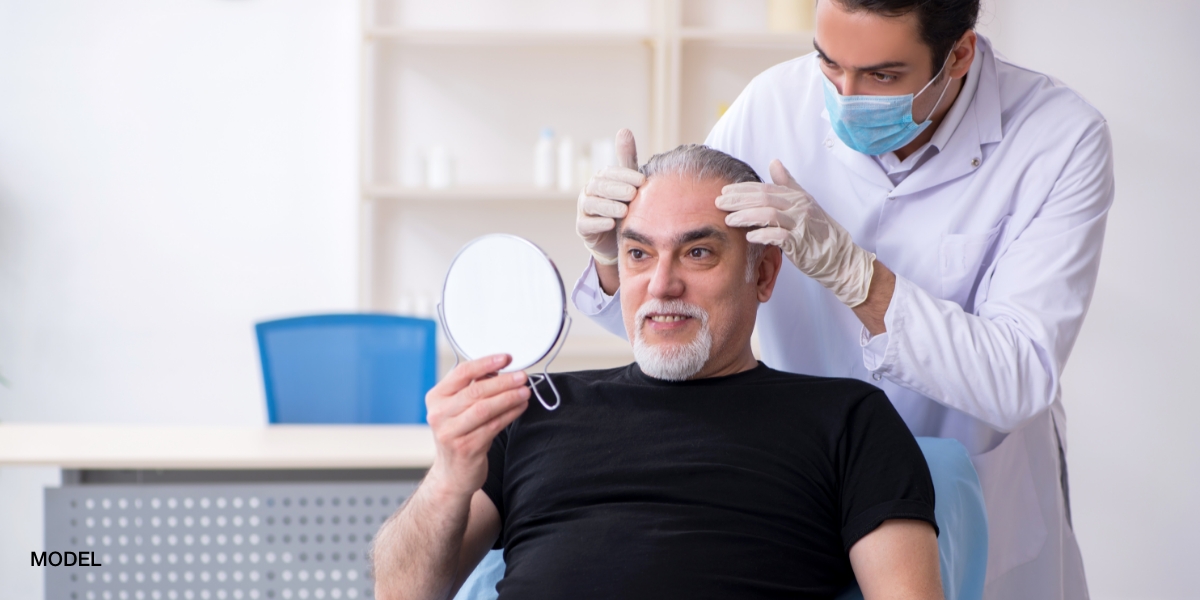 If you are like most people, you probably have a few—or more—moles dotted across your body. These small, brown, or black growths are incredibly common, with almost everyone having at least one. While moles are generally harmless, having a greater number of them increases your risk for developing melanoma, as twenty to thirty percent of melanomas arise from existing moles.
If you are like most people, you probably have a few—or more—moles dotted across your body. These small, brown, or black growths are incredibly common, with almost everyone having at least one. While moles are generally harmless, having a greater number of them increases your risk for developing melanoma, as twenty to thirty percent of melanomas arise from existing moles.
But how can you tell if a mole is cancerous? Read our helpful guide on eight warning signs to look out for when examining your skin for cancerous moles and spots.
8 Signs a Mole Might Be Cancerous
1. The Mole is New
Arguably the most important warning sign of melanoma skin cancer is a new mole, spot, or growth on the skin that has unexpectedly shown up. While it is common to acquire new moles throughout childhood, there is a much higher risk that new moles which appear during adulthood will become cancerous.
2. The Mole Has Uneven Borders
Have you noticed a mole on your body that has ragged, notched, scalloped, or blurred edges? Healthy moles have clean, well-defined edges, while cancerous moles are more likely to have irregular edges.
3. The Mole is Not Symmetrical
If you were to draw a line directly down the middle of the mole in question, would the halves line up? In many cases, melanomas are not symmetrical, meaning each half of the lesion looks different. Normal, healthy moles are typically round to oval with equal halves that match each other.
4. The Mole Has Uneven Coloring
Another important warning sign that a mole might be cancerous is uneven coloring. When examining your skin for cancer, do you notice any moles, spots, or lesions that feature different shades of brown or black? Or maybe even patches of pink, red, white, or blue?
Benign moles are typically one shade of brown or black, while melanomas often show several different colors, especially when they grow in size.
5. The Mole is an “Ugly Duckling”
In comparison to other surrounding moles, have you noticed one that looks significantly different? This is called an “Ugly Duckling” mole, and it is one of the most important melanoma warning signs.
Even if you have irregularly pigmented moles on your body, this does not inherently mean they are cancerous. This is especially true if you have several irregularly pigmented moles that resemble one another.
However, if you have one mole that does not match others around it, it is worth visiting a skincare specialist for further inspection.
6. The Mole is Larger Than a Pencil Eraser
Have you noticed a mole on your body that is larger than others surrounding it or continuing to grow?
If it is the size of a pencil eraser or pea (about 6 mm, or ¼ inch in diameter) or larger, schedule an appointment with one of our dermatology physician assistants for a professional skin cancer screening, as this is a crucial warning sign that a mole might be cancerous.
7. The Mole Changes Over Time
From changing in color and shape to growing in size or becoming more elevated, if you notice a mole that has evolved over time, this is a key skin cancer warning sign and symptom. After childhood, moles should typically stay the same and, as mentioned above, it is uncommon to acquire new moles as an adult.
In either case, whether you notice an existing mole changing or a new spot appears, it is best to make an appointment for a skin cancer screening with a skincare provider.
8. The Mole is Bothersome
Moles or spots that itch, bleed, or are tender to the touch should be professionally examined, as this is a symptom of not only melanoma, but also basal cell carcinoma and squamous cell carcinoma.
Visit The Wisconsin Institute of Plastic Surgery for a Professional Skin Cancer Screening
Have you noticed an unusual mole or suspicious spot on your skin that shows one or several of the skin cancer warning signs mentioned above? We urge you to visit the skin specialists at The Wisconsin Institute of Plastic Surgery for a skin cancer screening today.
When it comes to skin cancer, and especially melanoma skin cancer, early detection is key for optimal treatment. Contact us to schedule an appointment. Call us at (920) 380-9890.




